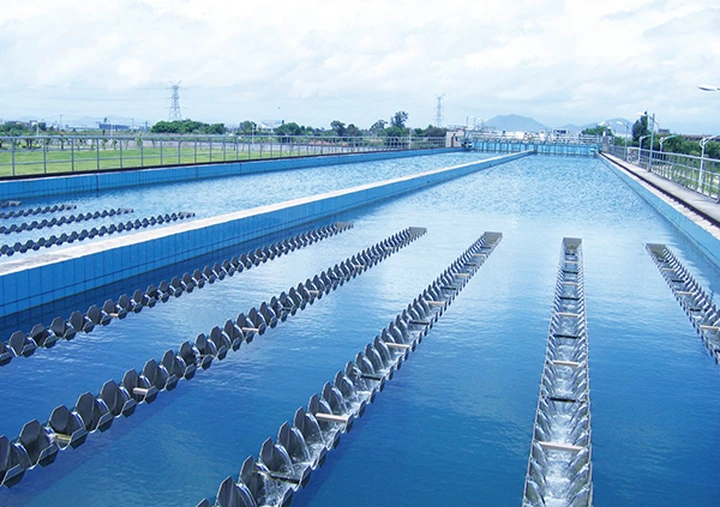 As the world becomes increasingly aware of the importance of water quality, many organizations encourage individuals to take action by prompting them to Book Now for workshops on implementing effective water monitoring strategies.
As the world becomes increasingly aware of the importance of water quality, many organizations encourage individuals to take action by prompting them to Book Now for workshops on implementing effective water monitoring strategies.
Water quality sensors are vital tools in ensuring that our water sources meet the necessary standards for safety and sustainability. They play a crucial role in monitoring various parameters such as pH levels, dissolved oxygen, and other chemical components that affect water quality. As the world becomes increasingly aware of environmental issues, the demand for reliable and accurate water quality monitoring continues to grow. This underscores the importance of having effective water quality sensors that can deliver precise measurements and timely insights.
At the forefront of this technological advancement is BOQU Instrument, which has dedicated itself to the development and production of high-quality water quality analyzers and sensors. By focusing exclusively on this niche since its inception, BOQU has established itself as a leader in the field, providing essential devices like water quality meters and dissolved oxygen meters. The effectiveness of these sensors hinges on several key features that enhance their reliability, making them indispensable for industries, municipalities, and environmental monitoring efforts alike.
Overview of Water Quality Sensors
Water quality sensors are essential tools used to monitor and analyze the chemical and physical properties of water. These devices provide critical data on various parameters such as pH, dissolved oxygen, turbidity, and conductivity. This information is vital for ensuring water safety, compliance with environmental regulations, and maintaining the health of aquatic ecosystems. As industries and municipalities increasingly recognize the importance of water quality, the demand for reliable sensors continues to grow.
The technology behind water quality sensors has advanced significantly, allowing for more accurate and real-time monitoring. Modern sensors utilize a range of methodologies, including electrochemical, optical, and thermal detection techniques. This diversity enables users to select sensors that best meet their specific needs, ensuring that they can effectively monitor the parameters most relevant to their applications. Companies like BOQU Instrument have dedicated themselves to the development and production of a variety of water quality analyzers and sensors, reinforcing the importance of innovation in this field.
Effective water quality sensors must also be user-friendly and capable of delivering results in real time. Ease of use ensures that operators can quickly understand and interpret the data presented, facilitating timely decision-making. Additionally, the durability and reliability of these instruments are paramount, especially in harsh environments where conditions may vary significantly. A focus on continuous improvement and the integration of smart technology are aspects that water quality sensor manufacturers prioritize to meet evolving demands in water monitoring.
Key Features of Effective Sensors
Effective water quality sensors must possess high accuracy and reliability to ensure that the data they provide is trustworthy. This is essential for water management systems that rely on precise measurements to monitor environmental conditions. For instance, instruments such as dissolved oxygen meters and pH sensors produced by companies like BOQU Instrument are designed to minimize errors and offer consistent readings in various water conditions. The ability to perform calibrations easily is another important aspect, as it allows users to maintain sensor performance over time.
Another critical feature of effective water quality sensors is their sensitivity to a wide range of water quality parameters. This includes not only pH and dissolved oxygen levels but also turbidity, temperature, and contaminants. Multi-parameter sensors can provide comprehensive data, making it easier for users to assess overall water quality without the need for multiple instruments. This feature is particularly beneficial in complex environments where multiple factors influence water quality.
Durability and ease of maintenance are also vital characteristics of effective water quality sensors. Given that these instruments are often deployed in challenging outdoor environments, they must be built to withstand harsh conditions while remaining functional. Sensors developed by BOQU Instrument are designed with robust materials that resist corrosion and wear. Additionally, easy maintenance features, such as simple cleaning processes and replaceable components, ensure longevity and reliability in the field, making them a practical choice for ongoing water quality monitoring.
Types of Water Quality Analyzers
Water quality analyzers come in various types, designed to measure specific parameters of water. Among the most common are pH sensors, which assess the acidity or alkalinity of water. These sensors provide critical information for various applications, from environmental monitoring to industrial processes, ensuring that water quality remains within acceptable ranges.
Another essential type is the dissolved oxygen meter, which measures the amount of oxygen dissolved in water. This is vital for aquatic life and is used extensively in fields such as fisheries, aquaculture, and wastewater treatment. Maintaining appropriate levels of dissolved oxygen is crucial for the health of aquatic ecosystems and the efficiency of treatment processes.
Conductivity meters are also important water quality analyzers, as they measure the ability of water to conduct electrical current, which relates to the concentration of ions in the water. High conductivity levels often indicate the presence of contaminants. These meters are essential for monitoring water quality in various settings, including drinking water supply and agricultural irrigation systems.
Technological Innovations in Water Quality Monitoring
Recent advancements in sensor technology have significantly improved the accuracy and efficiency of water quality monitoring. New materials and design methodologies have enabled the development of sensors that are not only highly sensitive but also resistant to environmental conditions. For instance, BOQU Instrument has focused on the innovation of pH sensors that deliver precise readings even in challenging settings, such as wastewater treatment facilities or natural water bodies. These enhancements ensure that water quality assessments are reliable, leading to better decision-making for environmental management.
Another noteworthy innovation is the integration of wireless communication technologies in water quality sensors. By employing IoT capabilities, sensors can transmit data in real-time to centralized monitoring systems. This connectivity allows for continuous tracking of water parameters, such as dissolved oxygen and turbidity, without the need for manual checks. BOQU Instrument’s water quality meters have embraced this trend, providing users with instant access to crucial data that helps in timely interventions and maintains compliance with environmental regulations.
Moreover, the use of machine learning and data analytics is emerging as a powerful tool in the realm of water quality monitoring. By analyzing historical data collected from various sensors, predictive models can be developed to anticipate water quality issues before they arise. This proactive approach not only enhances water safety but also optimizes the operational efficiency of water treatment processes. The focus on these technological innovations by companies like BOQU Instrument underscores the growing importance of integrating advanced technologies in safeguarding water quality for future generations.
Conclusion and Future Perspectives
The development of effective water quality sensors is crucial as we face increasing challenges related to water pollution and resource management. Companies like BOQU Instrument, which focus exclusively on water quality analyzers and sensors, play a vital role in advancing technology to ensure clean and safe water for various applications. Their commitment to producing high-quality instruments such as water quality meters, dissolved oxygen meters, and pH sensors ensures that we have the tools necessary to monitor and maintain water quality effectively.
Looking ahead, the future of water quality sensors lies in integrating advanced technologies such as IoT and artificial intelligence. These innovations can enhance data collection and analysis, leading to more accurate and real-time monitoring of water quality. As demand for automated systems increases, the ability to integrate sensors with smart technologies will revolutionize how we approach water quality management, making it more efficient and reliable for users across industries.
Lastly, ongoing research and development in sensor technology will likely lead to the creation of more compact, affordable, and user-friendly devices. Such advancements will ensure that effective water quality monitoring is accessible not only to large organizations but also to small businesses and communities. As we continue to innovate in this field, the role of water quality sensors will become increasingly significant in preserving our essential water resources for future generations.
